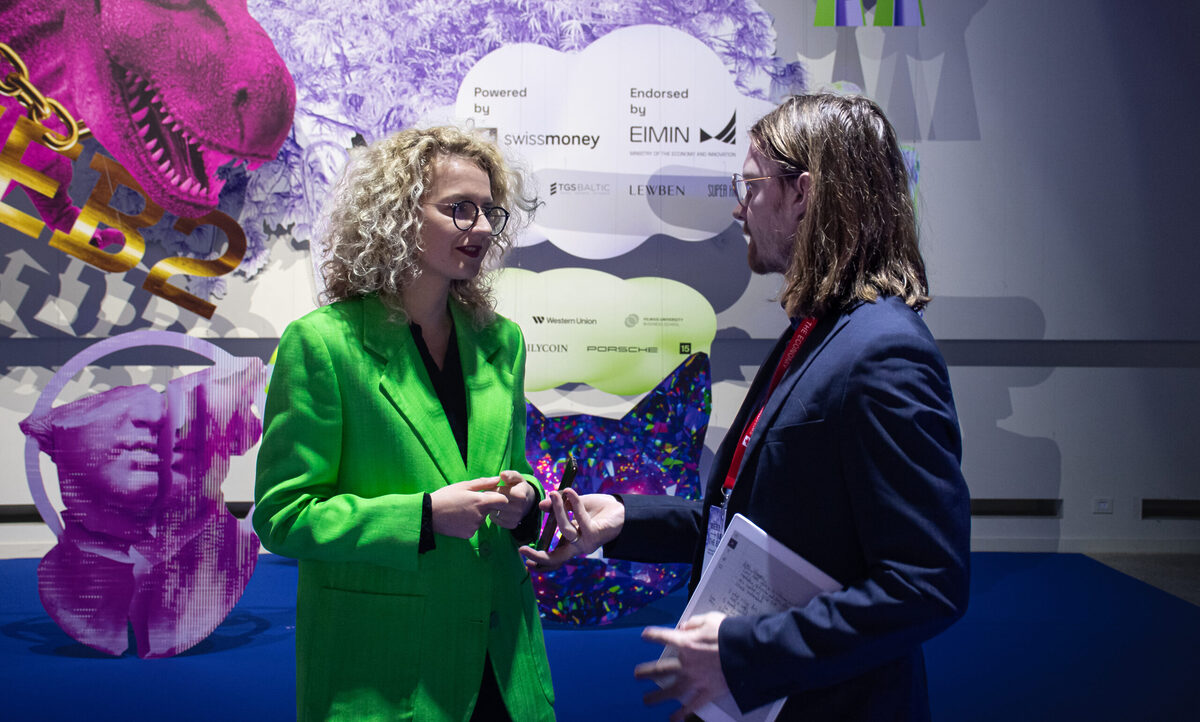
- Lithuania’s Minister for Economy and Innovation has outlined the country’s plan of becoming a crypto hub.
- Armonaitė hit back against critics of the country’s approach to implementing guidelines.
- The minister contended that EU regulations are following the U.S. closely.
As the world prepares to step into 2024, the crypto industry finds itself in a similar place to the start of 2023, as global regulators remain divided on how to regulate the scene. In the U.S., regulators continue to launch suits against centralized exchanges (CEX), labeling a majority of popular altcoins as “unregistered securities.”
Across the Atlantic, Europe is gearing up for the Markets in Crypto Assets (MiCA) framework that is set to change how crypto is handled across the continent. The landmark legislation will set expectations for crypto asset service providers and other projects, while setting restrictions on stablecoins in the name of user protection.
In the case of the latter, territories in the European Union are working to ensure that the framework is in place. One such country is Lithuania. At the Web3 Summit Vilnius 2023, DailyCoin Section Editor Stefan Trapp spoke to Minister Aušrinė Armonaitė, Lithuania’s Minister for Economy and Innovation, regarding the country’s view on blockchain technology.
Lithuania Sets Its Sights on Crypto
Lithuania boasts a combined startup valuation of €9.5 billion (approximately $10.3 billion) according to estimates in February 2023, suggesting that this valuation represents a growth of 1,700% in the past five years—the second fastest growing in Central and Eastern Europe.
Sponsored
This startup boom can be attributed to the Lithuanian government’s welcoming approach to businesses, helping the country build a reputation as a powerhouse in fields like lasers, IT, and now FinTech in the past three decades. The Baltic nation, however, is not looking to stop there.
Speaking with DailyCoin, Minister Armonaitė hailed the potential of blockchain technology and suggested that Lithuania intended to become a pioneer in the technology’s development, as it has in other fields.
Sponsored
“I think that blockchain technology is a major disruptor when it comes to digital economy,” the Lithuanian Minister enthused. “We want to be the sandbox, for application and be one of the prime jurisdictions where technology can take place.”

Armonaitė highlighted that it was this ambition, along with the versatility of the transformative technology, that has led Lithuania to such a welcoming stance.
“The technology may be applied in many areas, from governance to any kind of area. So, yeah, we are open to it.” The Minister emphasized.
Despite Armonaitė’s positive outlook, some industry participants contend that Lithuania is not doing enough in terms of crypto regulations.
Slow and Steady Wins The Race
So far, Lithuania’s efforts to implement crypto guidelines have consisted of amendments to anti-money laundering (AML) rules that ensure virtual asset service providers (VASPs) maintain a minimum liquidity of $125k and keep an exclusive compliance officer. The amendments also include a stalled effort to implement a travel rule.
Comparatively, other jurisdictions, such as France, Italy and Spain already boast robust crypto advertising rules in addition to VASP licensing rules. In Spain, these rules go as far as detailing how much space disclaimers should take up in ads.
In light of the growing disparity, critics have contended that Lithuania’s approach is too slow and reactive for the nation to truly stake a claim as a FinTech hub, but Lithuania’s Minister for Economy and Innovation begs to differ.
According to Armonaitė, the Baltic nation has taken a balanced approach to rolling out guidance for the crypto space with an immediate focus on shoring up defenses against risk factors through knowledge.
“We have to have a balance. We have to be open to some risk, but at the same time we have to have the competence to prevent them,” she asserted. “Now, we are building up AML competence.”
While Lithuania and other EU countries forge ahead with MiCA, however, the situation in the U.S. continues to keep investors on edge.
‘A Very Linked World’
US regulators have taken an enforcement-first approach to regulating cryptocurrencies, relying on existing financial regulations to govern the nascent industry. On the other side of the fence, major crypto firms such as Coinbase and Kraken have contended that there is no clear path to compliance in the region.
The lack of clear guidance has created confusion among firms, as a consensus on the classification of crypto assets continues to evade regulators, further leading to uncertainty over which agency has jurisdiction.
SEC Chair Gary Gensler has asserted that most crypto assets are unregistered securities, a stance that the agency has enforced in several lawsuits, including its recent action against Kraken. However, the CFTC, in separate enforcement actions, has labeled these assets as commodities.
Commenting on how the United States’ approach factors into the implementation of measures around crypto in the EU and Lithuania, Armonaitė emphasized that regulators in the EU are watching closely.
“It’s a global and very linked world,” she stated. “Obviously, European regulation is following very closely what happens in the U.S. and vice versa.”
The Lithuanian minister went on to assert that a higher degree of dialogue between the regions will be necessary between the allies to have any chance of properly guiding the global nature of the technology.
“I think that we need more dialogue among the two partners,” Armonaitė opined. “We have to integrate the whole approach because blockchain business and blockchain technology is a global solution. It doesn’t have borders. So the regulation also has to be more linked and integrated.”
On the Flipside
- Lithuania is not the only region in Europe hoping to become the continent’s crypto hub. In August 2023, France revealed its intentions to get ahead of other jurisdictions by revamping its crypto licensing regime in line with MiCA.
- In August 2023, The Baltic Times reported that Lithuania already played host to 470 registered VASPs.
Why This Matters
The statements from the Lithuanian Minister for Economy and Innovation underscore a growing recognition of the potential of blockchain technology across jurisdictions worldwide. They also highlight the need for a synergized global crypto regulatory approach and the growing recognition of the potential of blockchain technology across jurisdictions worldwide.
Read this to learn more about the impact of the current regional crypto regulatory divide:
MiCA Could Boost Crypto Adoption, But U.S. Cases Hold the Key
Learn all you need to know about Binance’s new CEO Richard Teng:
Meet Richard Teng: The Man Who Succeeds CZ at Binance

